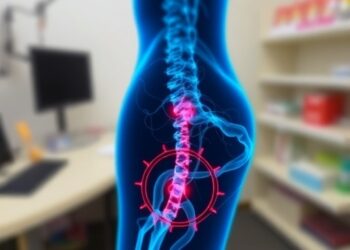Distrust of health experts and credulity towards misinformation can kill. For example, during the Covid-19 crisis, high-profile health experts received death threats while misinformation went viral on social media. And already long before the pandemic, easily preventable but potentially serious diseases had been making a comeback around the world due to vaccine hesitancy – often powered by conspiracy theories.
Distrust of health experts and credulity towards misinformation can kill. For example, during the Covid-19 crisis, high-profile health experts received death threats while misinformation went viral on social media. And already long before the pandemic, easily preventable but potentially serious diseases had been making a comeback around the world due to vaccine hesitancy – often powered by conspiracy theories.
But what feeds this lack in trust in reliable sources of health information? Can it perhaps be mitigated? Those are the subjects of a new study in Frontiers in Medicine by researchers from the US.
“Here we show that individuals who perceive conflict among experts about health recommendations, and who perceive that recommendations are constantly changing, have significantly lower trust in health information provided by government health agencies,” said Dr Arch Mainous, a professor at the University of Florida at Gainesville, and the paper’s senior author.
Nationally representative sample
Mainous and colleagues analyzed replies from 5,842 women and men over the age of 18 to the Health Information National Trends Survey, which gathers information on how the American public uses different communication channels to obtain cancer-related health information. Due to stratification, clustering, and weighting of subgroups within the wider population, this sample is believed to represent approximately 242 million people, or 93% of the adult US population.
The survey gauged trust in different kinds of medical experts with the question: “How much would you trust information about cancer from a doctor, government health agency, or scientist?” Answers for this and follow-up questions were on a four-point Likert scale.
It measured perceived uncertainty with two questions, “How often do health recommendations from experts seem to change over time?”, and, “how often do health recommendations from experts seem to conflict or contradict one another?”
A final question, “How much of the health information that you see on social media do you think is false or misleading?” focused on the respondents’ trust in social media as a source.
High trust in doctors
The results revealed that doctors were the most trusted source of information: 95% of respondents reported high trust in them. High trust was less frequently felt towards scientists (84%) and government health agencies (70%), and least towards social media (18%).
The minority who found social media trustworthy seemed to be a somewhat special group: for example, they expressed slightly but significantly less trust in doctors (92%) than their peers in terms of age, sex, race, total annual income, and education.
Importantly, people who perceived that recommendations often changed or conflicted indicated significantly less trust in scientists and health agencies compared to their peers. In contrast, their trust in doctors wasn’t impacted by their perception of uncertainty. These results imply that the process of scientific discovery, with its inevitable disagreements and changes in consensus among experts, seems to be confusing to the general public.
“Because our scientific and medical knowledge is always changing, this leads the public to question the expertise of government health agencies and brings up perceptions of political considerations in the crafting of the recommendations,” concluded Mainous.
Restoring trust
Fortunately, given that doctors continue to be well trusted, the results immediately suggested a way forward: to leverage the power and trust inherent in the patient-physician relationship, to ensure better health and restore trust in governmental health agencies.
“Government agencies need to continue to provide patient education, which is an integral part of public health. However, they need to focus more on letting individual physicians, rather than the agency director, for example, be the ones to disseminate agency recommendations to patients,” advised Mainous.
Journal
Frontiers in Medicine
Method of Research
Data/statistical analysis
Subject of Research
People
Article Title
Conflict among experts in health recommendations and corresponding public trust in health experts
Article Publication Date
26-Jul-2024
COI Statement
The author(s) declared that they were an editorial board member of Frontiers, at the time of submission. This had no impact on the peer review process and the final decision




